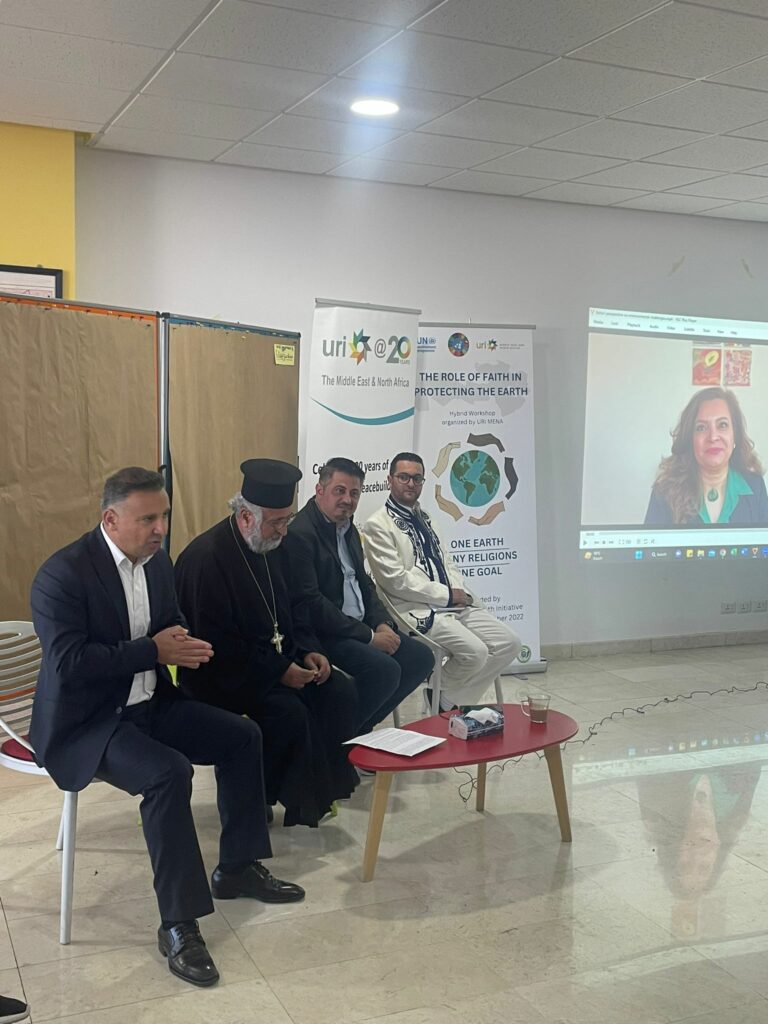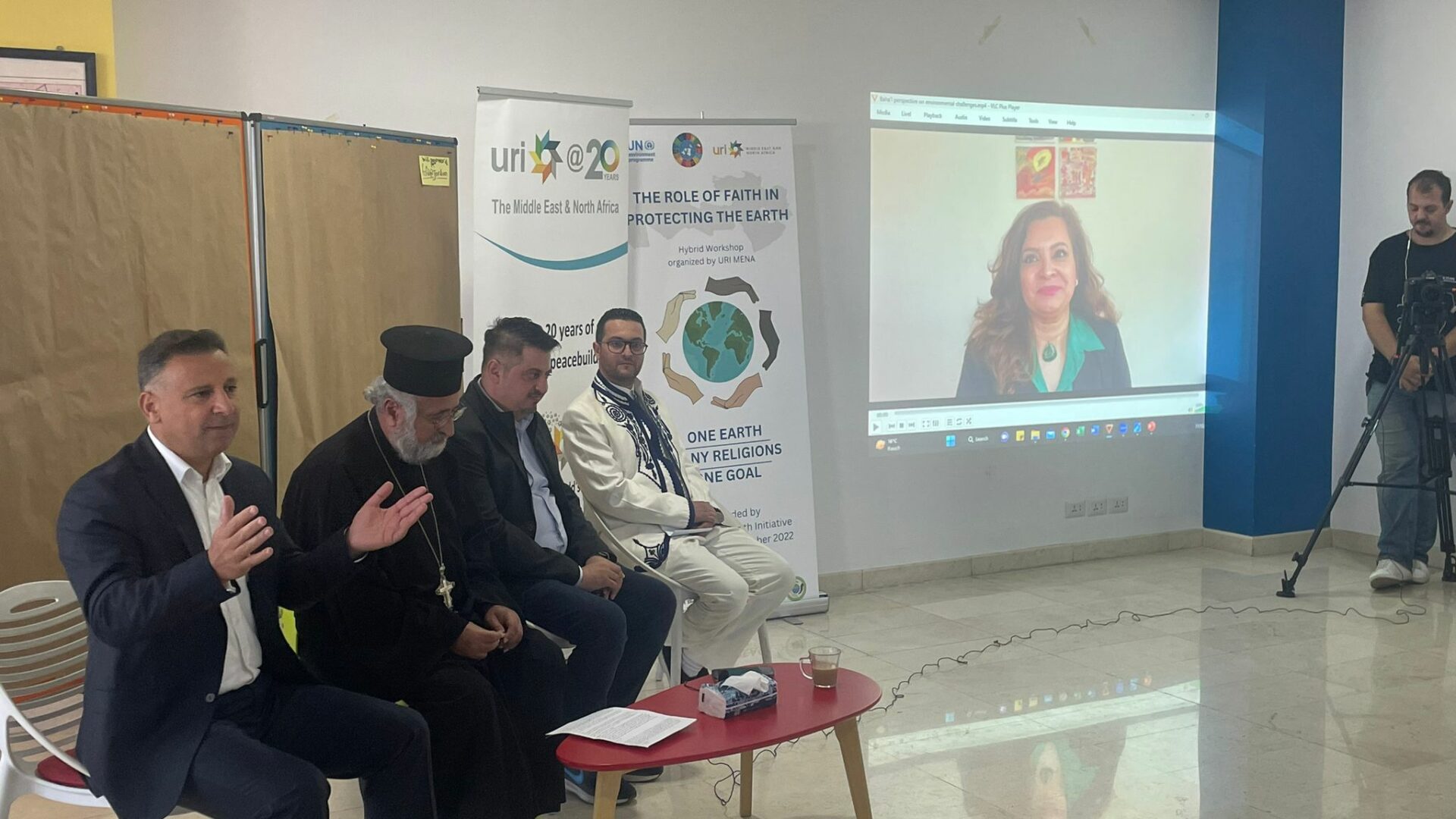Humanity is facing a severe climate crisis and the majority of civil wars are linked to control over natural resources e.g. land, oil and water. No matter where people live on this earth, they are confronted with this crisis. As for the majority of the world population religious values are driving their behavior, the United Nations initiated the Faith for Earth programme to call on religious leaders and religious communities to engage in environmental protection and climate activism.
URI MENA organized a kick-off event for the UN Faith for the Earth initiative for the Middle East and North Africa region on the 17th of October 2022 with more than 50 participants from 5 countries. During a full-day workshop in Amman, religious leaders from jewish, christian, islamic and bahai traditions came together with environmental activists. The day was full of discussion about the responsibility to heal and protect the earth and nature which can be found in many different religious scriptures. We all agreed on the fact that all religions share an essential, unshakeable respect and appraisal for creation and all living beings. You can read this in the following quotes:
“I brought you into a fertile land to eat its fruit and rich produce. But you came and defiled my land and made my inheritance detestable.” [Tanakh/Bibel, Jeremia 2:7]
“He created men. He taught him eloquence. The sun and the moon (move) by precise calculation. And the stars and the trees prostrate. And the heaven He raised and imposed the balance. That you do not transgress within the balance…” [The Noble Qur’an, 55:1-8]
“Nature in its essence is the embodiment of My Name, the Maker, the Creator. Its manifestations are diversified by varying causes, and in this diversity there are signs for men of discernment. Nature is God’s Will and is its expression in and through the contingent world.” [Bahá’í Writings]
Prof. Amer Al-Hafi from The Royal Institute for Inter-Faith Studies (RIIFS) emphasized the idea that we need to recognize not only human dignity but also the dignity of nature. We need to transform the focus on humans only to the centrality of life in general. Instead of preserving human life only, we need to preserve life in all its forms. So let’s acknowledge that we are all not only part of the human family but also part of the animal species and the family of living beings!
Environmental activists from Ecopeace shared their insight that the climate crisis is inflaming extremism and instability in the Middle East, which is the most water-scarce region on the planet. They stressed the idea of raising awareness of the challenges through education. Cooperation in the Middle East could not only establish climate security but also a framework for peace. Nawwar presented the Jordan valley as an example of a nature site which is sacred in many religions and a potential to transit from competition to cooperation.
Join the Faith for Earth initiative and stay updated about new events! During the next weeks URI MENA will release several videos and a handbook about how religious teachings can give us insights about the high value of our earth and sustainability. Lets get inspired to learn more about our planet, to share our commitment to care for it, and become part of the flourishing global interfaith movement!
We are very thankful to Ecopeace, DesertBloom and the Interfaith Center for Sustainable Development for their cooperation and distributions to the event.

